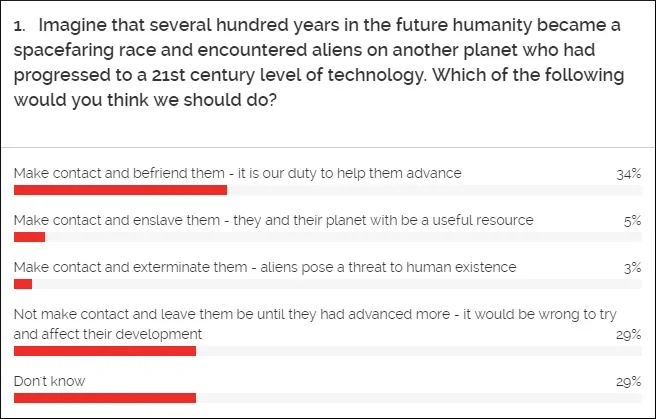
Would Americans follow The Prime Directive?
Only 29% of US adults would follow The Prime Directive
The beloved television series Star Trek is finally getting a new installment after being off the air for over a decade. Along with the new season – which is entitled Star Trek: Discovery – comes a brand new captain, crew, and gripping story line. Despite all of the changes to come, fans of Star Trek can count on at least one classic theme linking the reboot to its predecessors: The Prime Directive. The Prime Directive is an ethical principle which commands Starfleet personnel to never interfere with the development of alien cultures and civilizations.
While the regulation has long been a fan favorite for its moral implications, data from a recent YouGov poll suggests that The Prime Directive might not hold up so well in real life.
Participants were asked to imagine a scenario in which, hundreds of years from now, humans become a spacefaring race and encounter aliens on another planet whose technology is not as advanced as their own. When asked how humans of the future should respond to such a discovery, around a third of individuals (34%) agreed that we should befriend the aliens since it is our duty to help them advance. Only 29% of US adults thought that it was wrong to affect the alien’s development by making contact.

Interestingly, US millennials in particular seem unconcerned with upholding The Prime Directive. Nearly half of adults between the ages 18-24 (44%) and 25-34 (42%) support humanity influencing alien advancement. On the other hand, only 26% of those 35-44 think this would be the best course of action. Perhaps, when Star Trek returns to television, these numbers will once again shift as a younger generation is introduced to the rules governing the infamous Starfleet.
The same poll was also conducted earlier this month in the UK, where respondents were nearly evenly split between the two options – 36% wanted to aid in alien advancement, while 37% did not.